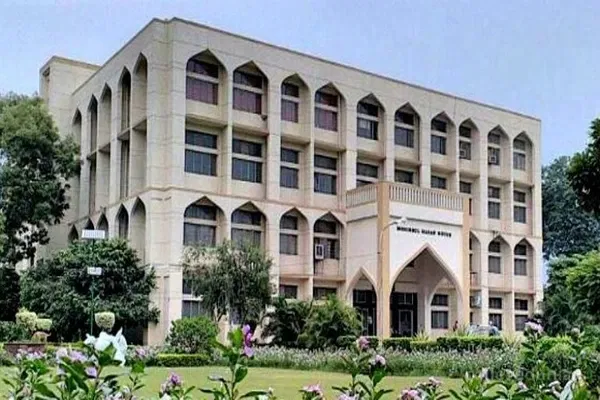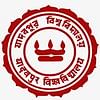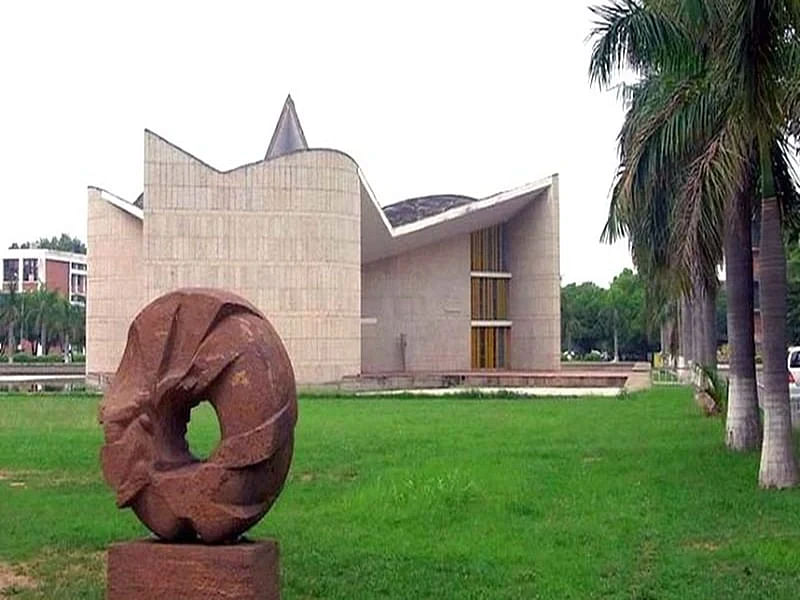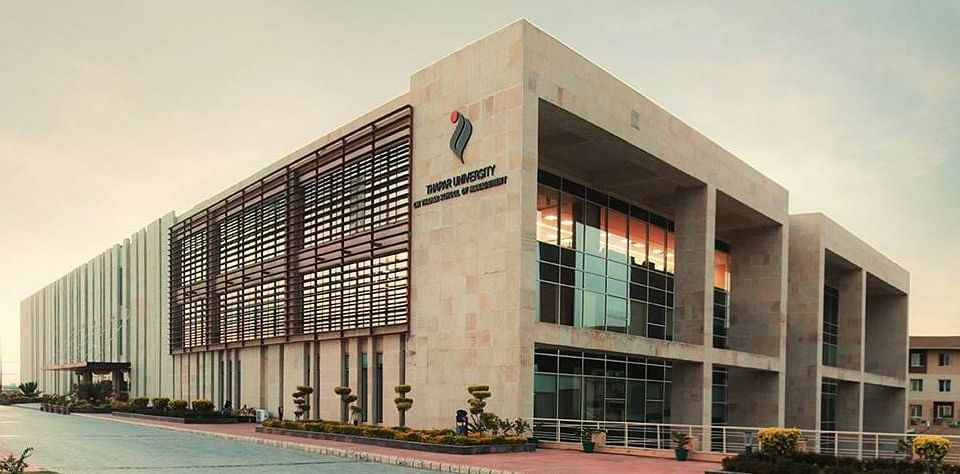Bachelor of Engineering Subjects and Syllabus
BE syllabus includes a mix of engineering physics, engineering chemistry, and elements of civil engineering & mechanics. Bachelor of Engineering syllabus is divided into 8 semesters with a focus on foundational and specialized subjects.
BE engineering subjects are structured in such a way that it enables students to excel in industries such as education, research, automotive, telecommunication, etc. Some of the BE jobs include technical officer, QA engineer, and network forensic expert in both private and public sectors.
Table of Contents
- Bachelor of Engineering Subjects
- Semester-Wise BE Syllabus & Subjects
- Specialization-Wise BE Syllabus and Subjects
BE Subjects
BE subjects are divided into core and elective subjects which gives students a comprehensive understanding of the course from basic to an advanced level. The B.E subjects of every specialization can also additionally have unique tenets of the syllabus. However, the typical format of the Bachelor of Engineering syllabus for any specialization stays the same.
BE Core Subjects
BE core subjects aims at giving students the required foundational knowledge that will be required and applied in every specialization. Some of the popular engineering subjects are listed below.
- Building Technology
- Structural Analysis
- Engineering Thermodynamics
- Electrical Drives and Controls
- Data Structures and Applications
- Analog and Digital Electronics
- Computer Organisation
BE Elective Subjects
Electives subjects allow students to study topics that pique their interest. Some of the elective engineering subjects are listed below.
- Cloud Computing
- Graphic Designing
- Cyber Security
- Autonomous Vehicles
- Material Handling
- Internet of Things
- Robotics
- Artificial Intelligence
- Machine Learning
BE Laboratory Subjects
The course format includes lab sessions, internships, and project-based courses in addition to theoretical study. Some of the laboratory-based BE course subjects are listed below:
- Power Electronics Lab
- Engineering Mechanics Lab
- Programming Lab
- Basic Electronics Lab
- Industrial Project
- Microcontrollers Lab
- Special Machines Lab
- Hydraulics Lab
- Thermodynamics Lab
| Bachelor of Engineering Course Details | Engineering Scholarships |
BE Subjects in Detail
The list of BE subjects and their topics is shown in the table below:
| BE Subjects | Topics |
| Physics-I | Scalar and vector fields, Gradient of a scalar field, Physical interpretation of gradient, Divergence and curl of a vector field, Conservative vector fields. |
| Engineering Physics | Quantum Mechanics, Wave Packet & Wave Equations, Crystal Structure, Semiconductor Physics. |
| Mathematics - I | Differential Calculus of Single Variable, Differential Calculus of Several Variables, Integral Calculus. |
| Engineering Mechanics | System of Coplanar Forces, Resultant, Equilibrium of System of Coplanar Forces, Kinematics of Particle, Kinematics of Rigid Body. |
| Basic Electrical Engineering | Resistance, inductance, capacitance, AC Circuits, DC Circuits, Generation of Three-Phase Voltages, voltage & current relationships in Star and Delta Connections. |
Semester-Wise BE Syllabus & Subjects
The BE course aims to make sure that the students get important knowledge about the study of origin and development of the subject as well. The course is divided into four years, whereas first year BE syllabus remains common for all specializations. From BE second year, the syllabus and subjects differ according to the elective or specialization selected.
BE First-Year Syllabus
The table below contains the engineering first year subjects that are common for all specializations.
| Semester I | Semester II |
| English | Communication Techniques |
| Engineering Maths I | Engineering Maths II |
| Engineering Physics | Engineering Chemistry/Physics |
| Engineering Chemistry | Engineering Mechanics |
| Computer Systems and Programming | Mechanical Engineering |
| Electrical and Electronics Engineering | Mechanical Engineering |
| - | Environmental Studies and Disaster Management |
BE Practical Subjects
The practical subjects included in the BE Syllabus are listed below:
- Engineering Physics
- Engineering Chemistry
- Basic Electrical Engineering
- Engineering Graphics
Specialization-Wise BE Syllabus and Subjects
Starting from the third semester all the way till the eighth semester, the course structure will change as per the specialization opted for by the student. Below are some popular BE specializations and their corresponding course structure.
BE Aeronautical Engineering Subjects and Syllabus
The BE Aeronautical Engineering subjects cover everything from Aircraft, Technology, and Programming. The Bachelor of Engineering Aeronautical Engineering subjects are as follows:
- Aircraft Stability and Control
- Fundamentals of Gas Turbine Engines
- Fluid Dynamics in Aircraft
- Principles of Environmental Science and Engineering
- High-Temperature Materials
- Air Traffic Control
- Gas Dynamics
- Propulsion
Read More: BE Aeronautical Engineering Subjects and Syllabus
BE Automobile Engineering Subjects and Syllabus
The Bachelor of Engineering Automobile Engineering subjects cover the basics of manufacturing, designing, and operations of automobiles. The BE Automobile Engineering subjects are as follows:
- Transforms And Partial Differential Equations
- Statistics And Numerical Methods
- Engineering Thermodynamics
- Applied Thermodynamics and Heat Transfer
- Fluid Mechanics and Machinery
- Engineering Materials and Metallurgy
- Automotive Engines
Read More: BE Automobile Engineering Subjects and Syllabus
BE Biomedical Engineering Subjects and Syllabus
The BE Biomedical Engineering subjects ensure that students gain ample knowledge from biomedical to engineering aspects of human health and the application of engineering principles and problem-solving methodologies.
The BE Biomedical Engineering subjects are as follows:
- Medical Molecular Biology
- Bio-fluid Mechanics
- Basic Mathematics
- Medical Aspects of Electromagnetic Theory
- Engineering And Biomaterials
Read More: BE Biomedical Engineering Subjects and Syllabus
BE Biotechnology Subjects and Syllabus
The BE Biotechnology subjects ensure that students gain extensive knowledge in Biotechnology as well as Engineering Technology, Medicine, and other useful applications. The BE Biotechnology subjects are as follows:
- Medical Molecular Biology
- Bio-fluid Mechanics
- Basic Mathematics
- Medical Aspects of Electromagnetic Theory
- Engineering And Biomaterials
Read More: BE Biotechnology Subjects and Syllabus
BE Chemical Engineering Subjects and Syllabus
Subjects of BE Chemical Engineering cover everything from turning raw materials into useful chemical products to the application of engineering principles and problem-solving methodologies. The BE in Chemical Engg subjects is as follows:
- Biochemical Engineering and Bioinformatics
- Plastics Engineering
- Engineering Chemistry
- Business Communications & Ethics
- Environmental Engineering
Read More: BE Chemical Engineering Subjects and Syllabus
Other Important BE Subjects & Syllabus:
- BE Civil Engineering Subjects and Syllabus
- BE Computer Engineering Subjects and Syllabus
- BE Computer Science Subjects and Syllabus
- BE Computer Science and Engineering Subjects and Syllabus
- BE EEE Subjects and Syllabus
- BE Information Science and Engineering Subjects and Syllabus
- BE IT Subjects and Syllabus
- BE ECE Subjects and Syllabus
- BE Marine Engineering Subjects and Syllabus
- BE Mechanical Engineering Subjects and Syllabus
- BE Mechatronics Subjects and Syllabus
- BE Mining Engineering Subjects and Syllabus
- BE Production Engineering Subjects and Syllabus
Bachelor of Engineering Course Structure
The BE syllabus has both theory and practical papers which are for a period of 4 years, divided into 8 semesters. The B.E Syllabus is made in such a way that both classroom training and practicals are included in the course curriculum. The course structure is given below:
- VIII Semesters
- Literary Theory and Practice
- Core Subject
- Elective Subjects
Bachelor of Engineering Teaching Methodology and Techniques
The curriculum takes into consideration different teaching techniques. Classroom learning includes practical sessions for students who are passionate about the subject. Here are the teaching methodology and strategies:
- Assignments
- Following Course Module Books
- Case Studies/ Research Work
- Internships
| Private Engineering Colleges in India | Government Engineering Colleges in India |
Bachelor of Engineering Projects
BE course project topics are given to students to understand the concepts and help students in getting hands-on experience with the course. The projects have to be completed and submitted by the end of the eighth semester. Some popular Bachelor of Engineering projects are:
- Over Voltage- Under Voltage Protection
- Automation using PLC
- Automatic Solar Tracker
- GPS & GSM-based Tracker
Bachelor of Engineering Books
Bachelor of Engineering books are available both online and offline by many authors and publications. These books are made to gain an in-depth understanding of concepts. Books on this course differ according to specializations. Some of the reference books for Bachelor of Engineering subjects are:
| Book | Author |
| Foundations of Electrical Engineering | Leonard S. Bobrow |
| Heat and Mass Transfer: Fundamentals and Applications | S S Bhavikatti |
| Engineering Mechanics | V B Bhandari |
| Basic & Applied Thermodynamics | P K Nag |
| Fluid Mechanics | Huebsch & Rothmayer |
Top BE [Bachelor of Engineering] Colleges
Top Engineering Entrance Exams
Bachelor of Engineering Fee Structure
FAQs on Bachelor of Engineering Syllabus and Subjects
Q: What is the syllabus of BE?
Q: What are the subjects in BE
Q: What are the BE elective subjects?
Q: What are the projects in BE?
Q: What does BE in Computer Science syllabus focus on?
























